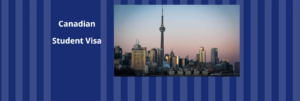
Individuals whose Canadian study permits have been denied may soon gain advantages from a new pilot initiative.
Table of Contents
Canada’s Federal Court has introduced the Study Permit Pilot Project, aimed at simplifying the process for seeking judicial review of rejected study permit applications. This project will commence on October 1.
Under the Pilot Project, individuals seeking leave and judicial review of their rejected study permits may complete the entire process in less than five months, compared to the current timeline of 14-18 months. This procedure involves requesting permission from the Federal Court of Canada to challenge an immigration decision.
Typically, a judge first determines whether to grant leave to proceed with the judicial review. If granted, the case is then heard based on its merits. However, under the new Study Permit Pilot Project, requests for leave and judicial review will be evaluated concurrently.
There is no additional fee to participate in the project, though applying for leave and judicial review incurs a cost of $50.
Who is Eligible?
Students may qualify for the Study Permit Pilot Project if they applied for a study permit and received a refusal letter from Immigration, Refugees and Citizenship Canada (IRCC). Other eligibility criteria include:
- Both the prospective student (the applicant) and IRCC must agree to participate in the pilot project.
- Both parties must consent to the underlying facts, as indicated by the application materials submitted to IRCC, which includes the full reasons for the IRCC decision.
- The case facts or issues—whether regarding the initial study permit application, the refusal from IRCC, or both—must be straightforward (e.g., no issues related to inadmissibility or national security, and no requests for certified questions).
- The applicant must not need to request an extension of time to file the Application for Leave.
- Affidavit evidence (which introduces new evidence) is not permitted under this new pilot project.
Study permit applicants applying from within Canada have 15 days from the date they received their application refusal to apply under this initiative. Those applying from outside Canada have 60 days to do so.
How to Apply
All documents must be filed online through the court’s electronic filing system. To opt in, applicants need to file an application for Leave and Judicial Review using Form IR-1 and reference the Pilot Project in three specific sections of the application. More details can be found [here](insert link).
After submitting the documents, a judge will review the application and inform the applicant of the decision.
Why are the Federal Court and IRCC Implementing These Measures?
The Canadian Federal Court noted an increase in leave and judicial review requests as a significant reason for launching this joint pilot with IRCC.
“The Federal Court is on track to receive 24,000 immigration filings by the end of December, which is approximately four times the yearly average from the five years preceding the COVID-19 pandemic.”
Recent policies have emerged concerning Canada’s acceptance of international students and graduates in 2024, as the immigration department seeks to alleviate pressures related to affordability and housing by reducing the number of temporary residents (including those on study or work permits or visitor visas) currently in Canada.
In January, IRCC announced the first-ever cap on international students, limiting the total number of newly issued study permits to 485,000 in 2024. Initially a temporary measure, this policy applied mainly to undergraduate and college students, exempting master’s and PhD students. The federal government allocated international student quotas to each provincial and territorial government based on this new cap.
In a recent policy update, Immigration Minister Marc Miller reiterated his commitment to the international student cap during a press conference on September 18th. He announced several additional measures, including:
- Reducing the targets for newly issued study permits by 10% for 2024, lowering it to 437,000 new permits in 2025.
- Including master’s and PhD students in the revised targets.
- Adding a language eligibility criterion for the issuance of Post-Graduation Work Permits (PGWPs) for international graduates based on their level of study.
- Limiting PGWPs for college students to those enrolled in programs linked to areas of high labor demand.
- Restricting eligibility for Spousal Open Work Permits (SOWPs) for spouses of master’s students based on the duration of the educational program.
FOR MORE INFORMATION CLICK ON : https://esseindiacomplaints.com/





